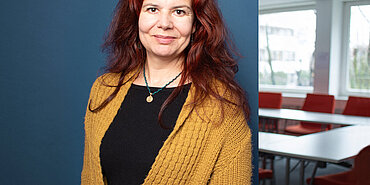Digital transformation is well underway – and it affects us all, no matter where in the world we are. The (international) youth work field is no exception. The pandemic has continued to accelerate the speed of digital transformation in non-formal education. Experts are experimenting with innovative designs and new approaches, learning from their experiences and applying what they learn in online and blended projects: youth exchanges, workcamps, volunteering schemes, training courses, conferences and many other settings. It was hence high time for a systematic examination of what has been happening so far and relating that to innovations taking place in other areas. The BarCamp format offered an attractive and inspiring setting for the around 50 participants who had come together to help (international) youth work evolve.
What’s at the heart of youth work?
In his opening remarks, Juha Kiviniemi from Helsinki appealed to the youth workers to look at digitalisation from a broader perspective. The social settings in which children and adolescents are growing up today have changed. Digitalisation means so much more than apps and smartphones – it impacts on all areas of life. It follows that youth work needs to assist young people in becoming confident navigators of today’s digital world.
The crucial starting point for digitalising youth work and developing digital formats, continued Kiviniemi, is to define clearly what is to be achieved and how, regardless of what kind of software or digital tool ends up being used. What is at the heart of what we offer young people? This exercise in awareness, this critical reflection of our own work, are instrumental when it comes to successful “digitalisation” of the field, he said. In addition, he felt it was vital to understand what young people actually do, how they communicate, what digital spaces they inhabit, and what problems they may encounter there. Platforms that are set up for a pre-defined purpose are no good, he said. The youth work community needs to reach out to its target groups on their terms and in their own spaces.
Are experts in a position to do that without being digital “nerds”? Absolutely, said Kiviniemi. He advised to start off small, trying out things oneself or using something that one was already familiar with. Once that was done, youth workers could venture further afield. In any case, no one should be afraid of doing something that could fail. In Kiviniemi’s own words: “If you fail, fail with a purpose”.
The working sessions on day 1 of the BarCamp centred on taking first steps and discussing existing approaches. For instance, Michele di Paola from Italy invited his session participants to explore the use of videogames as a non-formal education tool.
Antonis Bertos from Greece reported on an interdisciplinary art project where he brought together young people, artists and organisations from a variety of social backgrounds through digital performances, video dance, short films and other cultural activities.
Other topics on the agenda included Europe reloaded, an international youth conference that went virtual, escape rooms for youth information, online training courses, and a debate on social media tools.
Get started
The BarCamp’s organisers wanted to offer more than just inspiration. While day 2 of the event began with a discussion of innovative projects in other fields, which provided creative input, the participants were then invited to become active contributors. What project ideas are there? What plans do I have for my organisation? Ideas ranged from stronger cooperation and the activation and stronger civil society participation of young people to a study on the impacts that various technologies are having on young people. Participants also called for a further exploration of the possibilities involved in hybrid youth exchanges, specifically relationships in virtual spaces and use of playful, “activating“ methods, and asked for these insights to be shared via hubs.
The next opportunity to work on this issue will come already in the autumn, when an international working group will start exploring these and other subjects.
Thanks go to the BarCamp partners ConAct – the Coordination Center for German-Israeli Youth Exchange, the German-Polish Youth Office, the Franco-German Youth Office, TANDEM – the Czech-German Youth Exchange Coordination Centre and JUGEND für Europa, the National Agency for Erasmus+ Youth in Action and the European Solidarity Corps. The BarCamp received funding from the Federal Ministry for Family Affairs, Senior Citizens, Women and Youth (BMFSFJ).


![[Translate to Englisch:] [Translate to Englisch:]](/fileadmin/_processed_/3/d/csm_IJA_digital_Start_03014ae122.png)

